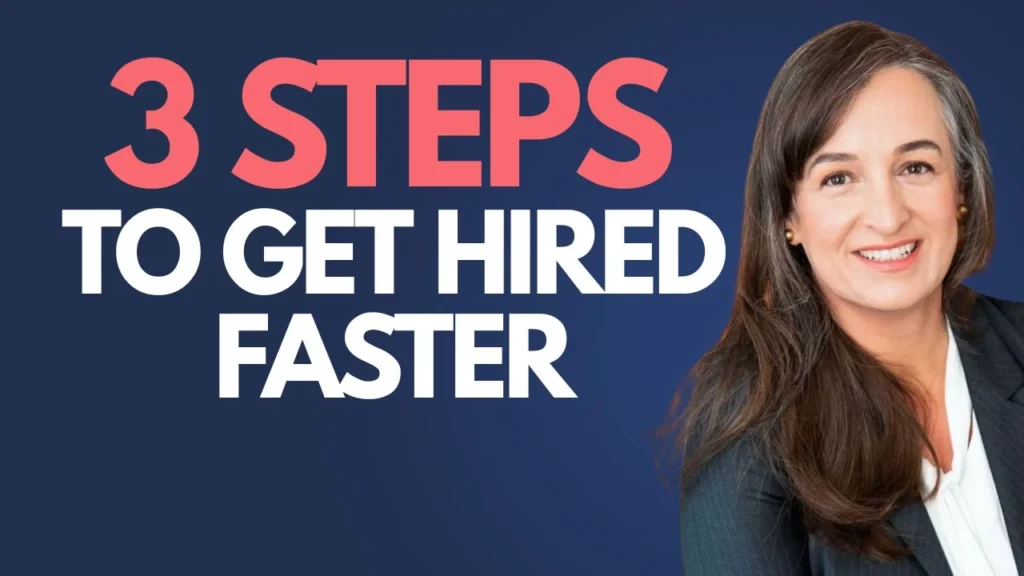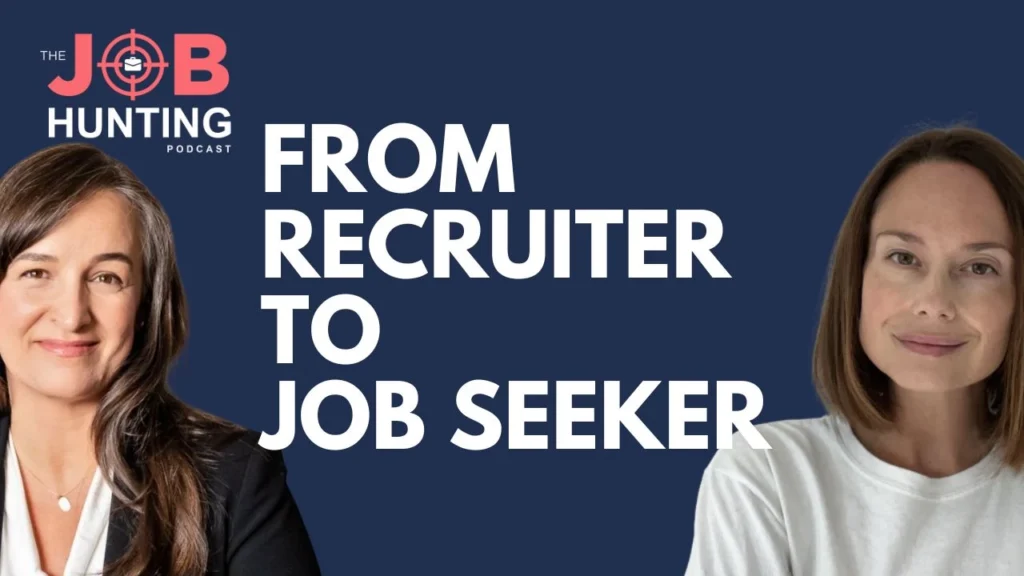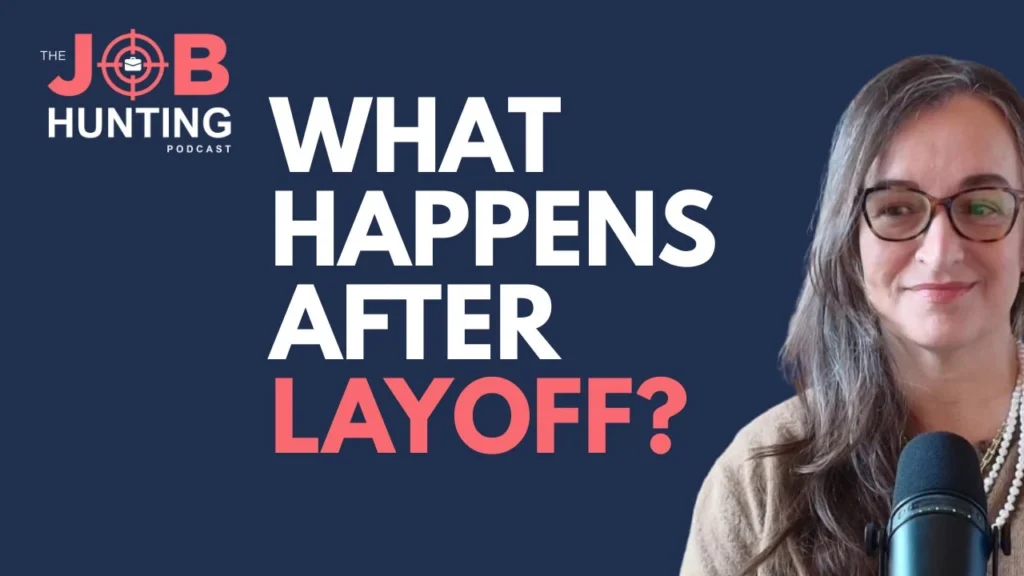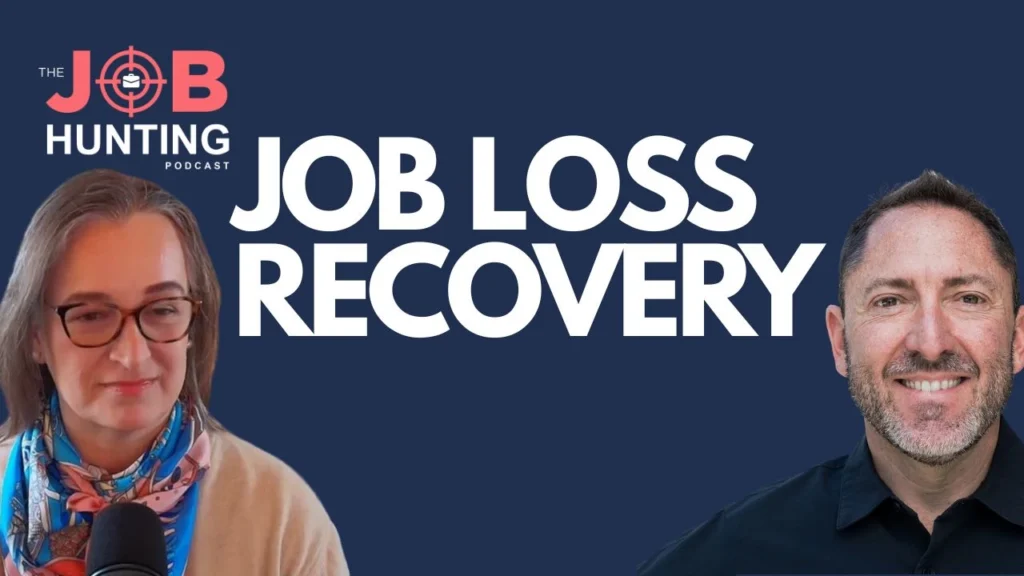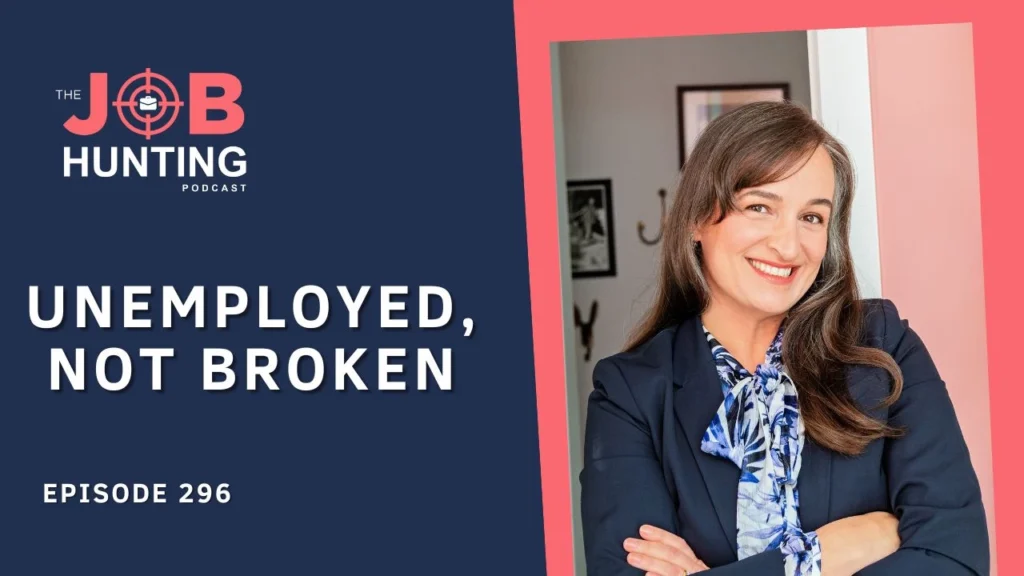You’ve Been Laid Off. Now What?
Episode 293 - You've Been Laid Off. Now What? A Step-by-Step Guide to Rebuilding Your Career
One of the most common missteps I see is jumping into job applications without taking the time for reflection. Before you start sending out resumes, stop and ask yourself:
- What do I want in my next role?
- What am I no longer willing to tolerate?
- What type of employer suits my life stage now?
This is especially crucial for professionals over 40 who want long-term alignment. Write down what has worked in your career and what hasn’t. Reflect on what energizes you and what drains you. This process helps you realign your career goals with your personal values and lifestyle needs.
Career Tools: Resume, LinkedIn, and Interview Prep
Once you’ve clarified your direction, it's time to upgrade your career tools. Most people skip ahead to this step, but without the foundational work, your tools won't be strong or relevant.
Start with your resume and LinkedIn profile:
- Focus on accomplishments, not just responsibilities
- Use metrics to showcase your impact
- Ensure your documents reflect who you are today, not who you were a decade ago
Optimize your LinkedIn headline and About section for searchability. Remember, recruiters and hiring managers use LinkedIn's search features to find candidates. Your profile must work for both human readers and algorithms.
Prepare your interview answers in advance. Practice speaking them out loud. This improves confidence and delivery. If you are pivoting to a new sector, tailor your experience to fit. If staying in your field, demonstrate recency and relevance.
Get feedback from someone outside your circle. A coach like me can provide strategic insights. While recruiters can be helpful, remember that they work for employers, not for you.
Networking: Your Best Job Search Tool
Your job search routine should not be just about applications. It’s also about connecting with people and leveraging your network. If you listened to Episode 292 with Troy Sultan, you know the importance of getting seen in a sea of applicants. His advice? Connect with people inside the organization. Start by reaching out to former colleagues, mentors, or peers. Don’t ask for a job. You don’t need the perfect pitch. You just need to re-enter the professional conversation, and you can do that by asking for advice:
- "I’ve been made redundant and am exploring next steps. If you were in my shoes, what would you do?"
- "Can you share insights on the job landscape at your company?"
Self-Care: Protect Your Energy
Job searching is both a marathon and a sprint. You may wait weeks between responses, then be asked to interview on short notice. It's emotionally exhausting, especially when you hear "no" more often than "yes." The goal is not to have a perfect routine, but rather one that is consistent and sustainable. Without self-care, the job search process can erode confidence and well-being.
Build a routine that supports mental and physical health:
- Sleep well and wake consistently
- Move your body every day
- Step away from screens and nourish your mind
Future Outlook: Evolving Career Transitions
Layoffs will continue to be part of the modern career journey. Careers are now longer, more dynamic, and often include major pivots. Professionals who view redundancy as an inflection point, not an ending, are best positioned to thrive.
Expect recruitment to become more digitized and competitive. AI tools are screening candidates. LinkedIn optimization and networking will only grow in importance. Professionals must take ownership of their career development and build visibility consistently, not just during a crisis.
And remember: being laid off is not a reflection of your worth. It’s a chapter in a long and evolving career. The key is to respond with structure, intention, and self-compassion. Clarify your financial position. Reflect on your goals. Upgrade your tools. Reconnect with your network. Protect your energy. If you do this well, not only will you land a new role, but you will also find one that is better aligned with who you are today.

About the Host, Renata Bernarde
Hello, I’m Renata Bernarde, the Host of The Job Hunting Podcast. I’m also an executive coach, job hunting expert, and career strategist. I teach professionals (corporate, non-profit, and public) the steps and frameworks to help them find great jobs, change, and advance their careers with confidence and less stress.
If you are an ambitious professional who is keen to develop a robust career plan, if you are looking to find your next job or promotion, or if you want to keep a finger on the pulse of the job market so that when you are ready, and an opportunity arises, you can hit the ground running, then this podcast is for you.
Resources Mentioned in This Episode
Episode 241 - You've Been Laid Off, Now What? A Guide for Corporate Professionals
Episode 238 - Job Search Loneliness: Strategies for Connection and Resilience
Episode 151 - Five Key Strategies to Guide You Towards Your New Job
Episode 133 - What to Do When Everyone Decides to Rethink Their Careers
Episode 254 - Unlocking Career Success: Expert Answers to Your Top Job Search Questions
Timestamps to Guide Your Listening
- 00:00 Navigating Job Loss: A Personal Journey
- 03:51 Processing the Emotional Impact of Layoffs
- 07:42 Financial Check-In: Stabilizing Your Situation
- 09:10 Reflecting on Career Goals: A Reset Moment
- 13:31 Updating Career Tools: Resume and LinkedIn Optimization
- 15:23 Networking: The Key to Job Searching
- 21:34 Well-Being During Job Search: Protecting Your Mental Health
- 23:41 Conclusion: Embracing Change and Supporting Others
Transcript
Because of the title of this episode, I assume that if you’re listening to it, it’s because you’ve been recently laid off, or you’re worried that it might be happening to you soon. I want to start by saying that I’m sorry this is happening to you. Being made redundant is deeply personal, even when it’s business. Whether you saw it coming, or if it hit you out of nowhere,
losing a job can shake your confidence, can shake your sense of identity and financial security gets a hit as well. It’s normal to feel disoriented or even ashamed, especially if you’re in your 40s, 50s and 60s. And you may be wondering how to bounce back, whether it’s too late to switch careers or how long is this transition going to take?
And you’re probably also getting a flood of advice, some of it helpful, some of it maybe not so helpful. In this episode, I want to guide you through these next steps, clearly, calmly, and with your future in mind. So let’s begin.
Before we begin, I want to take a moment to acknowledge a group of professionals who are top of mind for me right now. Over the past couple of months, I’ve had the honor of working closely with the HR professionals from the United Nations system who are helping professionals in the United Nations, United Nations agencies, and the World Health Organization who were made redundant last month.
the number is close to 20,000 professionals. And these are purpose-driven professionals who have dedicated their careers to protecting the rights and dignity of people around the world, often in the most complex and challenging circumstances.
Sadly, many of these professionals are now facing sudden redundancy due to funding cuts and restructuring. It’s a deeply difficult time, not just because of the job loss, but because of the emotional weight of leaving behind work that matters so much. The magnitude of the sector disruption due to funding cuts means many will not be able to stay and remain in the profession that they chose and they will have to change careers.
This episode is dedicated to them and to anyone who’s navigating a career transition right now. You are not alone and there is a way forward.
If you want to learn more about what happened in the United Nations and want to help them, there will be a link in the show notes and I will be explaining how you can help at the end of the episode as well. So stay tuned. If you are facing redundancy, reach out to me. Or if you are an HR professional or leader dealing with the difficult task of supporting your staff who are leaving your organization, reach out to me as well. Maybe I can help you.
and most importantly, maybe I can help them. There are links in the show notes to reach out to me or you can go to my website renatabernarde.com and see the courses and services that I offer. Okay, are you ready? Let’s begin.
Let’s consider this part one, the processing of laying off. First things first, this is a very big moment for you. It’s a very big moment for everyone to be honest, but I want you to take a breath. Layoffs are really emotional and they hit hard. Whether it was expected or came out of the blue, it is really normal to feel shocked, to feel angry, to feel anxious and to be grieving the job loss.
So give yourself the space to feel those feelings and feel those things. You don’t need to bounce back immediately, but you also don’t need to stay stuck. When you are ready, you can begin to shift from reacting to responding. So it’s important to take it one step at a time.
Then part two is the financial check-in. Before diving into job boards, let’s get practical. Do you understand your severance package? Are you eligible for unemployment benefits or any transitional support? Now is the time to review your finances. Make a short-term budget for the time you’re in transition. Identify what’s essential and what can be cut off immediately.
The goal isn’t to scare you. That’s not my goal, I promise. But it’s to give you a sense of clarity of what needs to be done during this time. Clarity creates confidence. So before jumping into job boards or updating your LinkedIn profile, you need to give yourself some space to stabilize your situation. Think of this as the triage phase. Financially, it’s important to get a clear view of your financial runway.
What’s your redundancy payout? What are your expenses? How long can you realistically go without an income? If needed, speak to a financial advisor. I am not a financial advisor, but I’ve been made redundant and that’s where my experience comes from. Especially if you’re in a situation where your household income is now significantly impacted, you want to move forward from a place of clarity and not a place of panic.
Emotionally, this is the time to take care of your nervous system. Career change at this level is ⁓ much more psychological than it is practical. So journaling, therapy, walks, quiet time, whatever helps you process the job loss. If you can make time for it, it will pay off in spades when you get to the job search phase. You don’t have to be fine right now.
but you do need to be grounded.
Now, part one and part two can take some time. It can take a week, it can take a month. Everyone is different. Everybody reacts differently. So I want you not to compare yourself with others, but to think about it from a perspective of, need to go through this and be as high performing as a job seeker as I can. So I need to go through these phases of grief, of anger, of challenge, of setting myself.
financially, emotionally before I go to the job market. Because if you go to the job market without doing that homework, they will notice that, right? There will be much more anxiety in your tone of voice, in the way that you present yourself. And ideally you want to build your structure, your resiliency before you go to market. Okay, now let’s go to part three. Let’s reflect on your career goals. This is
a very important moment for you. It’s a reset moment. One of the most common mistakes I see is rushing into job applications without stopping to reflect. If you don’t stop to reassess your direction, you may end up right back in the kind of environment that burnt you out in the first place or that may not even want someone like you in it anymore. Use this time to ask, what do I want?
in my next role? What am I no longer willing to tolerate in my next job? What type of employer or sector suits where I am in in my life right now, not where I was five, ten years ago? This is particularly important if you’re over 40 and don’t want to job hunt again in another year or two.
Taking this time to assess where you are going will be really important to find yourself the best place to land. Do you want to go back into a similar role? Do you want something different, more purposeful, more flexible, more stable? Write down what’s worked in your career and what hasn’t worked, what energized you and what drained you. This is your opportunity to realign. Don’t waste it. It’s important.
Then the next phase, part four, update your career tools. Funny that usually people start here without doing the homework that I’m asking you to do, which makes your career tools not really strong, crisp and robust as they should be. So let’s talk about your resume and your LinkedIn, because once you’ve done the homework from parts one, two and three,
Now is the time to refresh it. Make sure that the LinkedIn profile, the resume, that they tell a story of who you are right now, not who you were 10, five years ago. Focus on accomplishments, use numbers where you can, keep it concise, honest, and aligned to the roles that you want next. Update your resume to reflect your achievements, not just your responsibilities.
This is really important because that’s what people want to see. Optimize your LinkedIn profile, especially your headline and your about section. Because these days LinkedIn helps people find you even before you find the jobs that they are advertising. So the optimization of that profile is not just done for the human eye, it’s also done to improve searchability so that recruiters and employers
can quickly find you by doing a search. Prepare your interview answers to reflect today’s job market. You should not wait until you have an interview lined up to prepare your answers. We know the basic questions that will be asked in an interview, so preparing your answers in advance will help you get better and better at answering them with confidence, with pizzazz, with…
energy to showcase your expertise. Otherwise, you might be too stressed or nervous during an interview if you haven’t spoken those answers out loud before. If you’re targeting a different sector, this might mean that you need to reposition some of your experience. If you’re sticking to what you’ve always done, you still need to show that you’re up to date, that you’re relevant, and that you’re ready to go.
So there’s always homework to do if you’re staying in your sector or leaving, if you’re staying in your industry or leaving. There’s always homework to be done to show that recency or to show the transition. So here’s a tip, get someone outside your usual circle to review your resume. Ideally, a coach like me, I can do that. You can just book a consultation with me.
Sometimes recruiters can do it, but frankly recruiters don’t work for you. Recruiters work for employers and they are very busy. They are overwhelmed. There are hundreds of resumes and individuals like you looking for work. So recruiters are not as available as they used to be in the past. But maybe there’s somebody who’s recently landed a role that you know, somebody that got a job maybe a year ago, a few months ago.
Those are really good connections and you should reach out to them and ask them for advice and support.
Okay, so I have a call to action for you. If you’re ready to take proactive steps in your job search, consider enrolling in my short course, Reset Your Career. It’s very affordable and it’s designed to help you create a standout LinkedIn profile and resume step by step. And right now, if you purchase it before the end of June 2025, I’m offering a bonus for you. It’s a free
30 minute one-on-one chat with me. You will go through the course, do the work, and then we will meet to fine tune everything you’ve done together, you and I. Just go to renatabernade.com forward slash reset. There’s also a link to it in my show notes. It’s only until June, 2025 that you can get a 30 minute chat with me. I hope to see you soon.
Before I move to the next phase, I want to share with you a curated list of episodes that I’ve created for you to further assist you so you can listen to more episodes of the Job Hunting Podcast and dive deeper into the topics that we’re discussing today. First, there’s How to Bounce Back After a Layoff. That’s the title of the episode and there will be a link to it in the episode show notes below.
It provides insights on managing your job search effectively, both layoff and you might like the way that I explain it in that episode, so I would recommend that one. Then there is one called Alone in the Job Hunt and it addresses the emotional challenges of job searching and strategies to overcome them. So if you are feeling quite anxious, I would recommend that one. Then there’s The Secret to a Successful Career.
where we discuss strategies to guide you towards your next job. ⁓ Expert advice on job hunting features actionable strategies for networking and career transitions. And I hope that you explore these episodes and gain more insight and support during your job search journey. There are lots of other episodes, but I thought these ones were really ⁓ good to begin with.
Alright, let’s go to part five. What do we do next? Networking. Networking and finally job searching. Job searching doesn’t mean just sending out your resume into the world. Start with people. If you listen to episode 292 with Troy Salton, there’s a link to it below, it’s the one just before this one, you know that this is super important.
Here is a man who has created an AI platform for recruiters to see through hundreds of, sometimes thousands of applications. And he’s telling you, go find people in there, that organization so that you can cut through the noise and get seen. So if he’s saying that, you know how important that is. Start with people, reach out, reconnect.
Don’t ask for a job, ask for insight, ask for information, for perspective. I also don’t believe that you need to be ready to speak with them. This is a conversation I have with clients all the time, people that come to me wanting to perfect a perfect pitch and to have the right thing to say when all you need to do is ask people for advice. I have been made redundant. I’m currently in transition.
If you were me, what would you do now? What sort of advice can you provide me? You know, ask people for advice, for information about where they work, the types of jobs that they are seeing are being advertised. Especially if you haven’t looked for a job in over 10 years or even five years, pre pandemic, okay? You may be tempted to spend hours looking for jobs in job boards like LinkedIn jobs.
Those can be helpful, of course, but the roles you’re most suited for are probably not advertised or you will be competing with hundreds of other people. They may eventually be advertised as they should for due diligence to make sure that the recruiter or the HR team has covered all grounds. But when a job is advertised, a lot has happened already in terms of people that are tapped on the shoulder for the role.
people that are being considered for the position, recruiters and HR professionals that have gone on LinkedIn and try to find people that could potentially apply and spoken to them. instead, focus on activating your network, letting people know that you are looking and what are you looking for. And if you don’t know yet, ask them what you should be looking for. So reconnecting with old colleagues, with old contacts is so important. Letting people know
that you are exploring opportunity is really crucial at this point in time. Asking for advice, not introductions, not jobs, but ideas. It’s not about sending this broadcast message saying, I’m available for work in a LinkedIn post. It’s about re-entering the professional conversation, suddenly and in confidence with individuals.
In a few weeks, I will be hosting a free webinar to help you do this more effectively. And I would love to see you there. So keep listening to the job hunting podcast so that you will find those announcements of when I’m running free workshops. One of my clients, Tom, let’s call him Tom. That’s not his real name by the way.
He was a senior executive in the health sector and after 18 years, I think it was with one of his employees, he was made redundant and he did not know where to begin. Of course, his company arranged for him to work with me, which is great. His resume had not been updated since 18 years ago, maybe 20, because it’s not a new client. So it was a long time ago.
But after taking a few weeks to regroup, which I asked him to do even before he started working with me, we worked on a game plan together, right? So he reconnected with his contacts, people that he had not seen in a while, people that he didn’t even know would be there for him in time of need. He updated his positioning and with ⁓ that help of his contacts and myself, he… ⁓
wrote a much better pitch, a much better introduction and resume. I remember he also joined a board while he was job hunting. It was a voluntary role, but it was great to develop an area that he wanted to grow into to become more commercial, but he didn’t have that in his resume. So it was really a good idea. And it only happened because people knew that he was available and they said, ⁓ you’re available.
Would you like to join this board and help us out with I think it was treasury, you know some sort of important kind of work that needed to be done but ⁓ He hadn’t done that in his previous jobs Within three months he had three interviews two of those three interviews came from referrals not from jobs that he applied for and He ended up accepting a role that gave him more flexibility better pay
and a renewed sense of energy that he hadn’t had with his previous employer. Tom’s story isn’t rare. It’s about strategy. It’s about structured steps and a willingness to adapt, a willingness to understand that you are great at your job, but you may not know how to job hunt because that is a different type of ⁓ paradigm, right? Where
things are actually ⁓ decided and created, the rules are created by recruiters and not by you. So being visible, being curious, being a little bit vulnerable and letting people know what kind of roles you’re exploring can be really, really helpful. Also working with a coach who knows what she’s doing can also be very helpful. So think about investing in that from time to time in your career. And I’d be…
delighted to help you. Then part six, take care of your well-being. The thing about job hunting is that it can really take a toll. It is both a marathon and a sprint. There are times when you’re sitting and waiting and things take forever and then there are times when you have to react and respond quickly, within hours, very, very quickly. And it can really take a toll also because it’s very likely
that you will hear many more no’s than yes’s. It’s just the nature of recruitment and selection. There are lots and lots of candidates and only one vacancy. So in normal life, that’s not really the ratio that we’re used to and that we feel comfortable with. There are lots of studies in psychology about the ratio between negative and positive
comments about negative and positive things that happen to us and it’s definitely not what happens during the job search. During the job search you will probably be hearing more nos than yeses and that’s not really good for our mental health. So protecting your energy is very important during this time. Having a routine, sleeping, moving your body.
doing things that nourish you, that’s outside of the job search. You don’t have to be perfect, but you have to be consistent and know that this is the situation of job hunting. Because of how long it can take, it can take three months, it can take a year, it can really cause havoc to your mental health. So creating that discipline and trying to be as consistent as you can, remembering that that is not what naturally
we as humans like to be involved in a competition that lasts that long and it’s so tough. So remembering all of that is really important.
Now I’d like to wrap up. Being laid off isn’t a reflection on your worth. It’s a chapter in your career and it should happen from time to time because you’re going to have a long career. You’ve had a long career so far. There are many years ahead of you as well, if not decades. So it’s normal to expect things to go up and down and for things to be squiggly from time to time. So ⁓
You don’t need to have all of the answers during this time, right? You just need to take time to know what the next step is and the best investment of your time and energy during this process. And that’s what I’m here to do. That’s why I created the job hunting podcast. And I’d love to help you with that.
As I promised, I wanted to highlight how you can help the UN and WHO professionals that have been made redundant in May 2025. This idea was designed by the LinkedIn team in Europe and it’s a special banner that you will have on your LinkedIn profile, which highlights for those professionals that have been laid off from the United Nations and WHO that you
can be contacted for a short chat and a conversation. If you have been made redundant in the past, or if you have helped other people as a mentor or as a coach in the past or as a leader, you can be an ally, right? You don’t need special skills. It’s just a conversation. And it would be lovely for you if you could put your hand up for that. So I’ll put a link in the show notes that links to a page where you can download the special banner.
and add it to your profile. It’s a small action, but it has real impact and it will mean a lot for thousands of professionals out there that are currently looking for work. Thank you so much for listening. Be kind to yourself and keep going. Keep listening to the Job Hunting Podcast. Thank you so much for your support. Bye for now.


